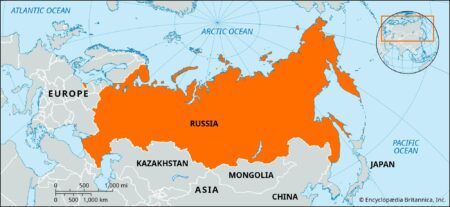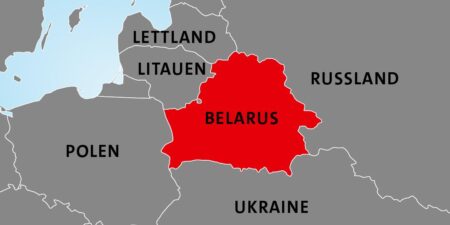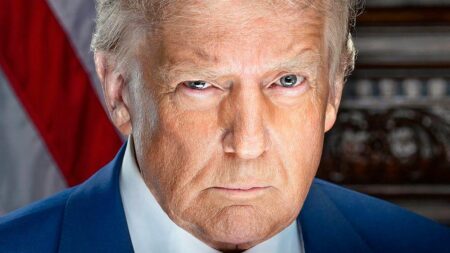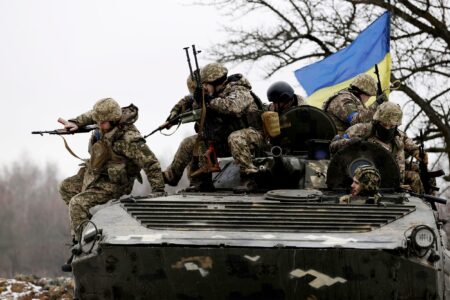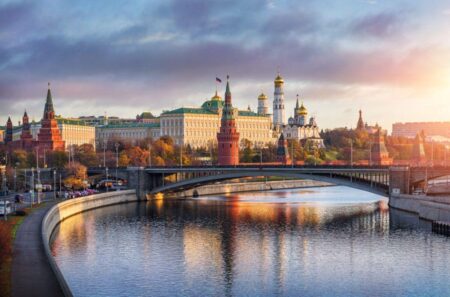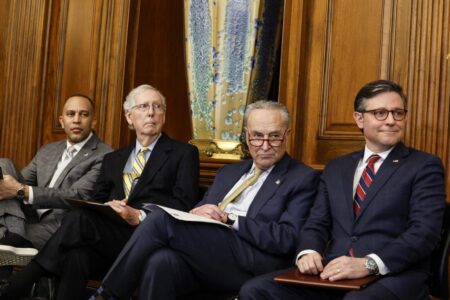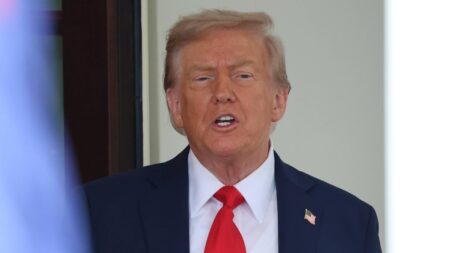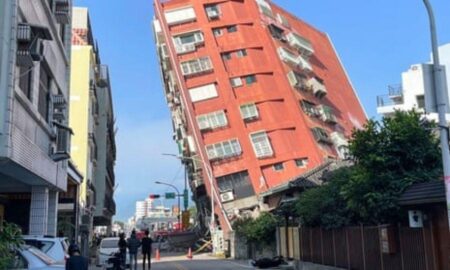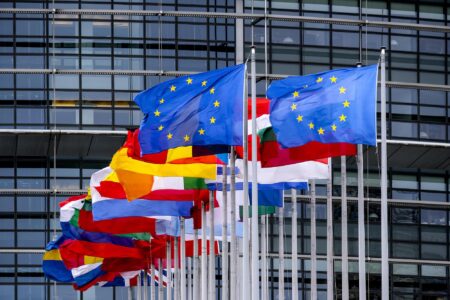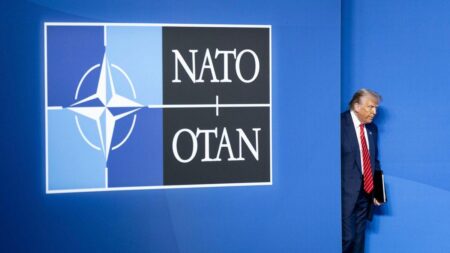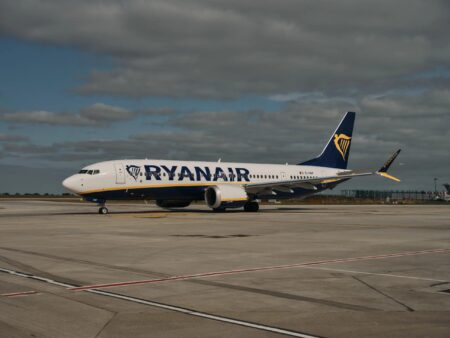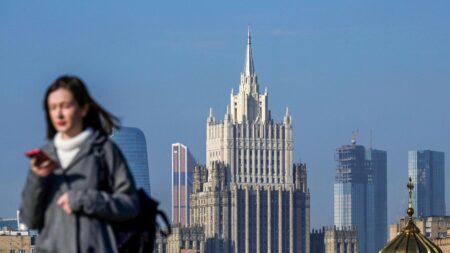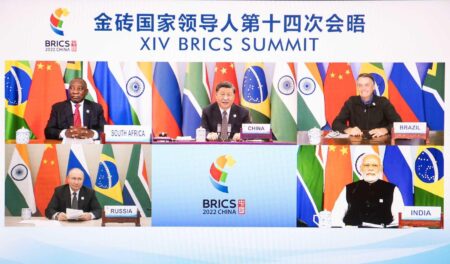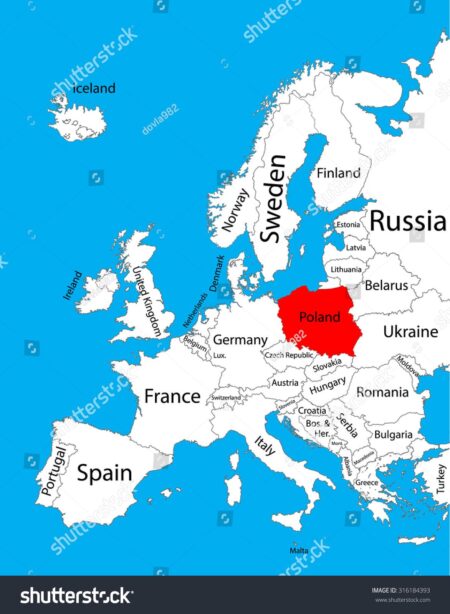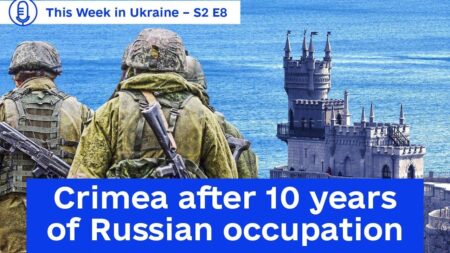A U.S. study reveals that Russia is forcefully training Ukrainian children at over 200 sites, igniting worldwide outrage over the exploitation of minors amid the ongoing conflict, reports TVP World
Browsing: Russia
Belarus has thrown open a rare invitation to U.S. military officers to observe joint drills with Russia, signaling an unexpected moment of openness amid tense East-West relations. This daring gesture highlights Minsk’s careful balancing act as it maneuvers through the intricate challenges of regional security
Former President Donald Trump urged NATO allies to immediately halt their purchases of Russian oil, emphasizing the critical need to weaken Moscow’s economy as tensions continue to rise. His call highlights the growing urgency for Europe to break free from its energy reliance
GOP Russia hawks are launching a bold new campaign to confront isolationist voices within the party, fiercely pushing to boost U.S. support for Ukraine amid growing internal divisions, Politico reports
Former President Donald Trump issues a stark warning: sanctions may be imposed if NATO halts its oil purchases, escalating the already tense Ukraine-Russia conflict. His remarks inject fresh tension into an increasingly complex geopolitical battle
Russia appears to be steadily turning up the pressure on the West, making calculated moves that probe reactions without igniting open conflict. Experts warn this deliberate approach aims to advance Moscow’s goals while avoiding a full-scale confrontation
US lawmakers are preparing to unveil new Russia sanctions in the upcoming funding bill, Reuters reports. This decisive action aims to intensify pressure amid rising geopolitical tensions and strengthen U.S. foreign policy objectives
Former President Trump has urged NATO countries to stop buying Russian oil immediately, highlighting the critical need to sever Russia’s financial lifelines amid ongoing conflicts, Reuters reports. This powerful call ramps up the pressure on allied energy policies like never before
A powerful 7.4-magnitude earthquake shook Russia’s Far East, sending strong tremors across the region. Thankfully, no casualties have been reported yet, but authorities are actively assessing the situation. Rescue teams remain on high alert, prepared to respond as events continue to develop
Former President Trump has stepped into the spotlight amid soaring tensions over Russia’s NATO incursion. At the same time, Poland is raising urgent alarms, warning that the threat of a military clash is the “closest since WWII,” as the Ukraine conflict edges dangerously toward a critical boiling point, Sky News reports
The Day with Phil Gayle takes you inside the latest Russia-Belarus military drills, revealing intense joint exercises unfolding amid rising geopolitical tensions. DW uncovers the high-stakes strategies and mounting worries over regional security
Exclusive: The EU is set to slash its reliance on Russian gas in just one year, US energy chief Jennifer Granholm told Reuters, highlighting a swift and remarkable shift as Europe accelerates its drive toward energy diversification
Russian wargames near NATO borders have sharply escalated tensions after a drone incursion into Poland, igniting widespread fears about regional security and intensifying urgent demands to strengthen alliance defenses, Bloomberg reports
NATO has dramatically boosted its defenses following the downing of Russian drones over Poland. This decisive move aims to reinforce regional security amid escalating tensions between Russia and NATO member nations, officials reveal
Ryanair warns that the Russia-Ukraine war could disrupt European aviation for years ahead, as airspace closures and soaring costs pose significant challenges. The budget airline stresses that the industry is in for a tough and lengthy journey toward full recovery
Russia has fired back fiercely at NATO’s outrage over a major drone breach, rejecting the accusations and warning that tensions could escalate even further. This incident marks a pivotal flashpoint in the mounting security standoff between Moscow and the alliance
The American Enterprise Institute pushes back against fears of a united India-China-Russia alliance, arguing that such concerns are greatly exaggerated. Despite some overlapping strategic interests, deep-rooted conflicts and contrasting priorities make a formal partnership between these nations highly unlikely
Poland and its allies have successfully intercepted a “huge number” of Russian drones amid rising tensions, denouncing the attacks as a daring “act of aggression.” This alarming escalation underscores growing concerns over regional security, Euronews reports
Russian forces have tightened their grip on eastern Ukraine amid escalating clashes, but local resistance continues to fight fiercely. Supply lines are coming under growing pressure as international sanctions intensify, fueling this relentless and intense conflict
Photos reveal Russian naval vessels closely tailing US and NATO warships in the Atlantic, spotlighting rising maritime tensions amid escalating geopolitical rivalries, according to Newsweek sources

